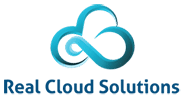Selecting the Right AI Tools and Technologies for your Business Objectives

Australian businesses, particularly those in Brisbane, are increasingly exploring the transformative potential of artificial intelligence. Yet, as with any significant investment, the key to success lies in careful selection and strategic implementation. Choosing the right AI tools is not simply a matter of picking the latest software or following industry trends. It requires a thorough understanding of your business objectives, the challenges you want to address, and how AI can fit into your existing structure. If your organisation is ready to explore this path, our AI Employees services can help you navigate the process with clarity and purpose.
Selecting the right AI tools involves more than finding a solution that promises impressive capabilities. It is about identifying technology that directly supports your goals, integrates seamlessly with your operations, and can scale alongside your growth. This article explores the practical steps to ensure your AI investment delivers measurable, lasting benefits rather than becoming an under-used asset.
- Aligning Tools with Your Business Objectives
- Evaluating AI Platforms and Technology Options
- Ensuring Scalability for Future Growth
- Assessing Vendor Support and Long-Term Reliability
- Meeting Data Privacy and Security Requirements
- From Selection to Successful Adoption
- Your AI journey doesn’t have to be overwhelming — but it does have to be strategic.
Aligning Tools with Your Business Objectives
The first step in selecting the right AI tools is to have a precise understanding of your objectives. Implementing AI without clear goals is like embarking on a journey without a destination. Are you looking to enhance customer service, reduce operational inefficiencies, increase revenue, or extract deeper insights from your data? Each of these aims may require different solutions, and aligning your choice of tools with your intended outcomes ensures you focus resources where they will have the most impact.
Defining your objectives also helps in narrowing down potential use cases. For example, if you aim to automate repetitive administrative work, you might focus on AI tools designed for workflow automation. If your priority is improving forecasting accuracy in supply chain management, predictive analytics platforms could be a better fit. The point is to avoid generic solutions and instead match the right AI tools to well-defined needs.
Once objectives are set, it is worth involving stakeholders from across the business. Department heads, operational managers, and even frontline employees can provide valuable insight into where the right AI tools could have the greatest effect. Often, those who use the systems daily can pinpoint specific inefficiencies that might not be obvious from a higher-level perspective.
You should also evaluate how the right AI tools might integrate with existing software and processes. This ensures they can be implemented without major disruptions. Analysing the potential return on investment is equally important, as it allows you to prioritise tools that deliver measurable value. By assessing these factors early, you lay the groundwork for adopting the right AI tools that meet your current needs and adapt to future growth.
Evaluating AI Platforms and Technology Options
Once objectives are clear, the next step is evaluating platforms that could provide the right AI tools for your business. While major providers such as Google, Microsoft, and Amazon each offer extensive AI capabilities, the choice should be guided by how well these tools fit your use cases. Consider not just the available features, but also how they integrate into your workflows, how they handle data security, and whether they align with your budget.
In many cases, AI platforms include a broad range of capabilities, from data preparation and model training to deployment and monitoring. This can be advantageous if your business intends to expand AI use over time, as it avoids the need to switch providers mid-way. However, smaller, more specialised tools may offer greater depth in a specific function, such as customer service automation or advanced image recognition.
When narrowing down your options, it is useful to conduct pilot tests with the right AI tools before committing fully. This allows you to evaluate real-world performance, assess ease of use for your team, and ensure the solution genuinely supports your intended outcomes. Vendor support should also be considered, as access to training, troubleshooting, and updates can influence long-term success.
Integration is often the deciding factor. Even the most powerful AI solution can cause disruption if it cannot communicate effectively with your existing systems. Compatibility with your databases, ERP systems, or customer relationship management software ensures data flows freely and prevents information silos from forming. Selecting the right AI tools also involves ensuring they can adapt to changes in your business model or scale up as demand grows. By reviewing these factors thoroughly, you increase the likelihood that the right AI tools will deliver value from the start and continue to meet your needs over time.
Ensuring Scalability for Future Growth
One of the most important considerations when selecting the right AI tools is scalability. Businesses rarely adopt AI for a single, one-off project. Once initial benefits become clear, there is often interest in extending its use to other departments or processes. If your chosen tools cannot grow with your needs, you risk having to replace them entirely, which can be costly and time-consuming. The aim when choosing the right AI tools should be to ensure they are capable of adapting to both short-term objectives and long-term ambitions.
Cloud-based AI platforms offer natural advantages here, as they provide flexibility in processing power and storage capacity. They can handle increases in data volume without requiring major infrastructure changes. Similarly, AI solutions that support distributed computing can process large datasets faster, an essential feature for applications such as deep learning. By selecting the right AI tools with these capabilities, you can future-proof your investment and avoid expensive disruptions later.
Scalability is not just about technical capacity. It also relates to licensing models, vendor support, and the availability of skilled staff who can manage and expand AI capabilities over time. If the right AI tools come with a clear upgrade path and adaptable licensing terms, they will remain practical and affordable as your business evolves. When scalability is built into the selection process from the outset, you create an AI environment that can grow steadily and continue delivering value for years to come.
Assessing Vendor Support and Long-Term Reliability
Vendor support plays a significant role in whether the right AI tools will deliver lasting value. A well-supported tool ensures that your team can overcome technical issues quickly, access ongoing updates, and receive guidance on best practices. Good support includes detailed documentation, training materials, and responsive technical assistance. Without this, even the right AI tools can fail to achieve their potential, as staff may struggle to use them effectively or fail to take advantage of all available features.
When evaluating vendors, consider their track record in your industry. A provider that understands the specific challenges faced by your sector is more likely to offer relevant solutions and be proactive in addressing potential obstacles. An active user community is also valuable, as it provides a forum for sharing experiences, troubleshooting problems, and learning new ways to get the most from your tools. By selecting the right AI tools from a vendor with a strong community presence, you gain access to a wider pool of practical knowledge and peer support.
Reliability also depends on the stability of the vendor itself. Choosing the right AI tools from a company with a solid financial and operational background reduces the risk of service interruptions or the sudden withdrawal of key features. You should also look for evidence of a clear product development roadmap, as this indicates the vendor’s commitment to improving the platform over time.
Finally, ongoing engagement is crucial. A vendor that offers regular check-ins, tailored advice, and updates based on customer feedback will help you adapt and refine your AI strategy. With the right AI tools backed by dependable vendor support, you can maintain momentum, resolve challenges quickly, and maximise return on investment over the long term.
Meeting Data Privacy and Security Requirements
In the age of digital operations, data security is a non-negotiable factor when selecting the right AI tools. Any platform that processes sensitive customer or business data must comply with relevant privacy regulations and demonstrate strong safeguards against unauthorised access. Without these protections, even the right AI tools could create unacceptable risks for your organisation.
This includes encryption of data both at rest and in transit, robust access controls, and multi-factor authentication for system administrators. Encryption ensures that information is unreadable to anyone without proper authorisation, while access controls limit data exposure to only those who genuinely require it for their role. Multi-factor authentication adds another layer of protection, making it far harder for malicious actors to gain entry.
It is also worth checking whether the vendor has relevant compliance certifications, as these indicate adherence to recognised industry standards. ISO 27001 certification, for example, signals a strong commitment to information security management. For Australian businesses, selecting the right AI tools also means ensuring compliance with the Privacy Act 1988 and, where applicable, the Notifiable Data Breaches scheme. Failure to meet these requirements can result in significant penalties, reputational damage, and loss of customer trust.
Another consideration is where and how your data is stored. Some AI platforms host data in overseas data centres, which can raise additional legal and compliance questions. You should confirm whether the right AI tools store data locally, in jurisdictions with strong privacy protections, or in regions that match your organisation’s compliance obligations.
Ultimately, choosing the right AI tools involves more than just performance or functionality. Security and compliance must be central to your decision-making process. By prioritising these factors, you ensure that your AI initiatives deliver lasting value without exposing your business to avoidable risks.
From Selection to Successful Adoption
Selecting the right AI tools is only the first part of the journey. Successful adoption requires planning, training, and ongoing evaluation. Creating a roadmap for implementation helps keep the process structured, with clear milestones and responsibilities. Starting with smaller pilot projects allows your team to gain experience with the technology, identify areas for adjustment, and build internal confidence before committing to a wider rollout.
Engaging employees throughout the process is equally important. Those who will use the tools daily can provide insights into usability, suggest modifications to suit workflows, and highlight potential problems before they escalate. Training ensures that your team understands not just how to operate the tools but how to apply them in ways that generate tangible business results.
Finally, set clear performance metrics so you can measure the impact of the right AI tools over time. Whether your goal is to reduce processing times, increase sales, or improve customer satisfaction, tracking these results will guide future AI initiatives and ensure ongoing improvement.
Your AI journey doesn’t have to be overwhelming — but it does have to be strategic.
The right tools, matched to your business goals, can transform how you operate, scale, and compete. The wrong ones can drain time, money, and momentum. That’s why it’s not about chasing the latest tech fad — it’s about making decisions that serve your business today and keep you ahead tomorrow.
At Real Cloud Solutions, we don’t just recommend AI tools — we help you choose, implement, and integrate them so they deliver measurable results from day one. Whether you’re looking to automate processes, gain deeper insights, or future-proof your operations, we’ll guide you every step of the way.
If you’re ready to stop guessing and start gaining a competitive edge, book your strategy call today. Let’s identify the right AI tools for your objectives, design a clear plan, and set your business on a path to long-term success.
